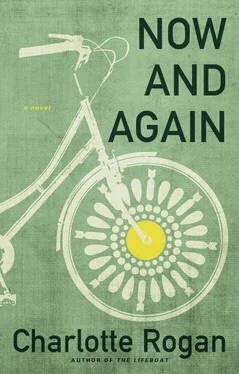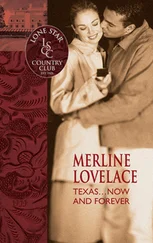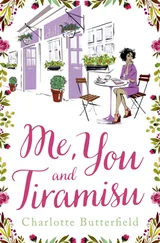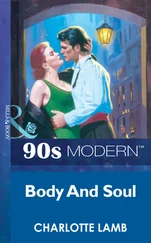— Sheriff Hank Conway
Alpha particles are not harmful until they are aerosolized and inhaled or ingested, but what about the gamma rays, x-rays, and neutron particles emitted by unexploded ordnance? All three have much longer penetration ranges than alpha radiation. Neutrons are especially harmful to living tissues, but you can’t measure them. When they decay, they leave no trace.
— Professor Stanley Wilkes, Oklahoma State University
Hell, the guys at the plant were sitting right on top of that stuff, and so were the military drivers and pilots in Iraq.
— Munitions Worker, name withheld
My nurse is the one who convinced me to get involved. Soldiers are risking their lives every day. They have a right to know where the danger is coming from.
— Levi Thomas, M.D.
Everyone assumed Lyle and I were having an affair. That’s how it is in Red Bud. People get wrapped up in the minor scandals and they miss the bigger ones.
— Lily De Luca
11.1 Will
In the days between joining the army and shipping out, Will was treated like a hero by everyone he knew. It reminded him of the brief period when he had wanted to be a doctor. Whenever he went into the Main Street Diner, Lucas Enright called out, “Coffee’s on the house!” The mayor sent him a bottle of champagne despite the fact that Will was underage. He and Tula drank it while watching The Bourne Identity, after which they went for a walk and talked about what the movie meant.
“My favorite part was the beginning, when Matt Damon said, I can tell you the license plate numbers of all six cars outside. I can tell you that our waitress is left-handed and the guy sitting up at the counter weighs two hundred fifteen pounds and knows how to handle himself.… Now why would I know that? How can I know that and not know who I am?”
“How sad,” said Tula.
“Sad? I think it’s incredibly cool. He’s kind of like Spider-Man. And anyway, who really knows who they are?”
“I do,” said Tula. “At least I used to know.”
“Everybody has sides to him, sides that are brought out by particular circumstances. So there’s no telling who you might be under different conditions.”
“I think that underneath, everybody has a solid, unchanging core.”
Sometimes Will took Tula with him to the diner, but more and more often he went alone. The diner had always seemed special to Will. “Let’s go out to eat!” his father would announce every now and then, and his mother would flutter back and forth between delight and consternation. “Oh dear, give me a minute to fix my hair,” she would twitter. “Is this the right shade of lipstick for my dress?”
While they were waiting for her to get ready, Lyle would say to Will, “You can see why I married your mother — she was the town beauty, and she still is.”
In the truck, Maggie would shrink up against Lyle in the front seat and put her hand on his shoulder as if she needed protecting, even though everyone knew she could handle most things just fine. Then they would park at the Super Saver and walk up Main Street to make the evening last longer. When they reached the diner, they would sink into the red leatherette seats of a booth and Lyle and Will would open their menus and Lyle would ask, “What do you say, Will? What looks good today?” All of it made Will feel older than he was, as if the occasion was both a festive celebration and a solemn lesson in how to be a man.
Some Saturdays, Lyle took Will to the diner for pancakes while they let Maggie sleep in. Saturday mornings were different from the evenings in that except for the waitresses, it was all men, which gave the narrow room a clubby feel. The men dragged out their breakfasts, tapping pipe tobacco onto their plates and talking about politics and the state of the world as they chewed, as if this were the spot where grave decisions about economics and foreign policy were made. Inevitably, one of the men would say, “Damn it!” or “Damn it all to hell!” which only made the subject seem more urgent, affecting not only the future of the planet, but the mysterious fate that lay in store for Will. He never spoke much at those breakfasts, but his protruding ears took in everything that was said, and his mind sifted through the various tidbits of conversation for clues about what that fate might be.
The worst thing about quitting school was that now he only saw Tula when she wasn’t busy with other things. Ten days before his departure, she called to say she had a surprise for him — she would pick him up at his house at seven o’clock on Saturday evening. “Be there or be square,” she said. All week long, Tula acted mysterious, and if Will pestered her with questions, she said her lips were sealed.
When Saturday came, Will put on the navy shirt with the pearl buttons and sat at the kitchen counter while Lyle ate some miniature sausages straight from the tin and washed them down with a can of beer. “Are you sure you don’t want any?” he asked.
“Thanks anyway,” said Will. He suspected Tula was planning a special dinner, and he didn’t want to spoil his appetite. At 7:15, Will walked down the driveway to peer up the empty road, and at 7:25, he walked all the way to where the hill dipped and flattened out. When he got back, Lyle was sprawled on the couch, listening to a journalist explain that there were five Iraqs, not one, to a host who kept interrupting. The empty sausage tin was sitting on the countertop along with dishes from that morning and also from the night before.
At 7:45 he called Tula’s house, but no one answered. By the time she finally arrived it was almost eight and both of them were flustered, dissolving the air of mystery that had built up over the previous week. “Where were you?” Will asked, but they both knew it wasn’t a question so much as a complaint.
“My mother had to work late at the Winslows’ house and I couldn’t get the car,” said Tula. “But it will be worth the wait. I promise.”
“I hope we’re going to eat,” said Will. “I could eat a horse.”
“Oh,” said Tula. “I forgot about that.”
“Who forgets about eating?” Even though Will had stopped getting taller, he was still filling out, and food was never very far from his mind.
“Men!” said Tula the way she often said it, but neither one of them was in the mood to laugh. Then she repeated, “It will be worth it. You’ll see.”
They drove for a little in silence. Sleet had fallen earlier in the day, and the moon was throwing its cold light over the frozen fields, washing them in silver. Instead of heading into town, Tula steered toward the highway and turned into the parking lot of the town’s only motel, which catered mostly to long-distance truckers. Will wasn’t sure what to say until Tula took a room key from her pocket and dangled it before his eyes. “I helped my mother today so she could get to the Winslows’ early so she could get back with the car — not that that worked out exactly the way I planned it. Anyway, while I was at it, I took a key to one of the empty rooms.”
Her tone had become teasing, and as soon as Will took in what she was saying, his hunger vanished, replaced with a burning sensation deep down in his belly. He drank in Tula’s perfume, and the sight of her standing on the frozen pavement under the star-strewn sky filled him with wonder.
Tula’s fingers fumbled with the key, but she wouldn’t let him take it from her. “I can get it,” she said. By the time the door sprang open to reveal the disarray of an unmade bed and the greasy remains of a half-eaten take-out dinner, the burning inside Will caused him to interpret Tula’s gasp of dismay as a cry of passion. He scooped her up and tossed her onto the bed, choking a little on his own suppressed cry.
Читать дальше












